How to Get Rid of the Bad Smell in Your Kitchen Sink
Does your sink stink in the kitchen? Nobody wants to deal with this inconvenient – not to mention gross – problem, especially in the area where you prepare food. Fortunately, the cause of your stinking kitchen sink drain is likely to have an easy fix. Find out more about how you can help combat and prevent kitchen sink smells in this article.
Why does my kitchen sink drain smell bad?
Kitchen sink smells, though unpleasant, are fairly common. Here are possible reasons why your kitchen sink drain smells bad:
- Food debris is stuck in the pipe. Bits of food can become trapped in the drain and cause clogs, which can start to smell over time. Oil and grease in particular can stick to the walls of the pipe, causing other food particles to accumulate. Bacteria feed on the rotting food and lead to a bad smell in the kitchen sink drain.
- The pipe is dry or damaged. This is likely the case if your kitchen sink smells like rotten eggs. This is because the P-trap pipe is designed to hold a small amount of water to act as a barrier, sealing out sewer gases and preventing them from escaping through the drain and into the kitchen.
- Mildew or mold build up. Although less common, mold can thrive in the dark, damp conditions of a sink drain. If your kitchen sink smells like mildew or has a general musty odor, mold is the likely culprit.
- Contaminated water tank. Sometimes water can be the source of the odor. If your kitchen sink smells bad when the water runs, there could be an issue with the water tank. If you notice that the water from other faucets in the house smells, it’s likely that the tank is contaminated and requires professional assistance. However, if the smell is only in the kitchen sink water, the problem may be build-up in the drain or faucet.
Note: If your sink has a garbage disposal and you suspect this is causing the smell, view our guide on getting rid of garbage disposal odors. Otherwise, keep reading for tips for how to remove kitchen sink drain odor.
How to help get rid of kitchen sink smells?
Depending on the source of the smell, there are several things you can try to deodorize a kitchen sink. The bad smell will most likely be due to food buildup or a clog in the drain, but if the odor persists after you’ve tried DIY methods, there could be a deeper plumbing problem.
If your sink is slow draining, it’s likely that you have a clog that could also be causing the stinking kitchen sink drain. We have a blog post on how to unclog a kitchen sink that you may find useful, as well as garbage disposal unclogging tips. However, if the sink is functioning normally but has an unpleasant smell, you’ll need to try one or more of the methods below.
Use hot water for your smelly kitchen sink
One simple kitchen sink drain deodorizing method is using hot water. You can use boiling water or hot water with dish soap to flush the drain and try to clear the smell from your kitchen sink. Here’s how:
The boiling water method
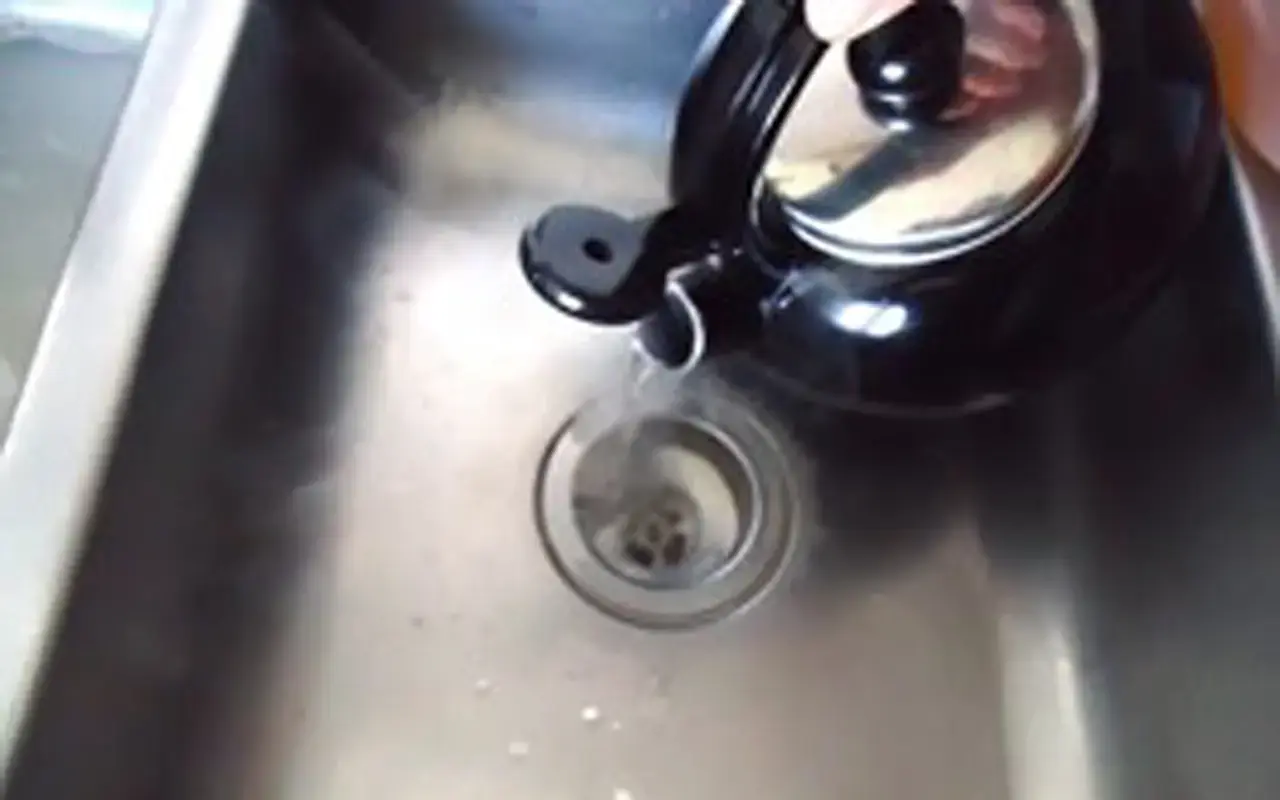
- Boil a kettle or fill a pan with water and heat it on the stove.
- Pour boiling water slowly into the drain. The boiling water will help to melt away any grease and debris sticking to the insides of the pipe.
- Run the faucet afterwards to flush the drain.
Note: Be careful about pouring boiling water down a sink with PVC pipes as this can soften them and lead to damage or leaks.
Hot water and dish soap method
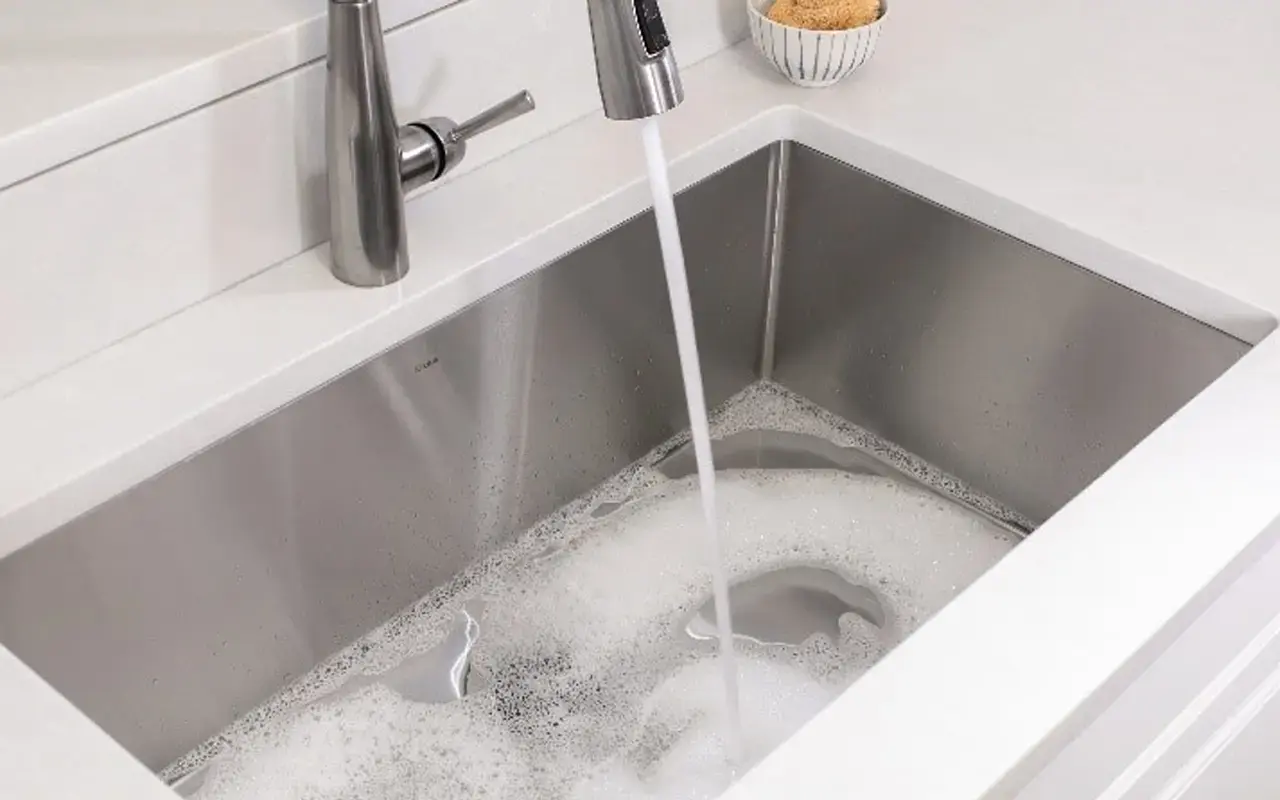
- Plug the sink with a stopper and fill it halfway with hot, soapy water.
- Wait for 10 minutes, pull the plug out, and let the sink drain. This will help to dislodge any food residue stuck to the walls or base of the sink basin, which could be causing a foul odor.
- Flush the sink with more water to clean the remaining soapy solution from the basin.
Use baking soda for kitchen sink smells
Baking soda can help neutralize unpleasant kitchen sink drain odors. When combined with other ingredients, baking soda reacts to tackle buildup and grease, as well as freshening the scent.
Baking soda and vinegar
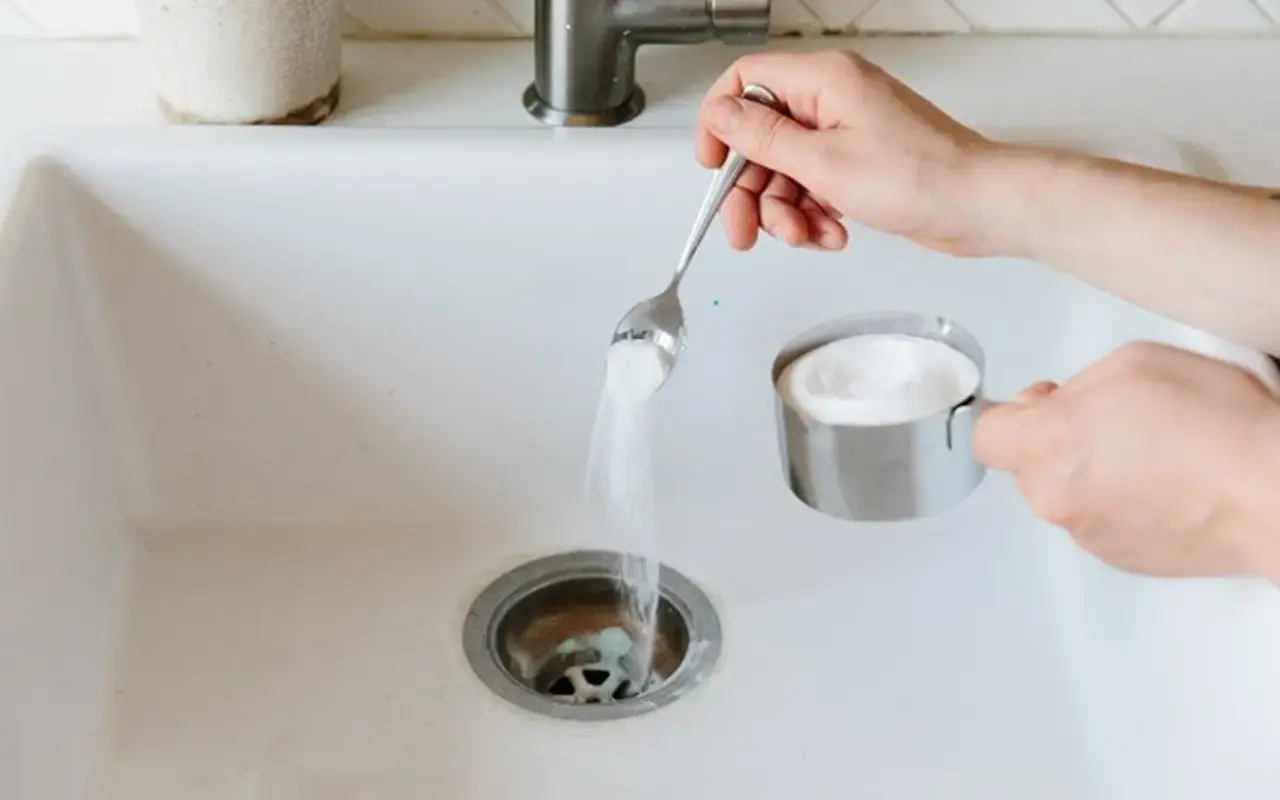
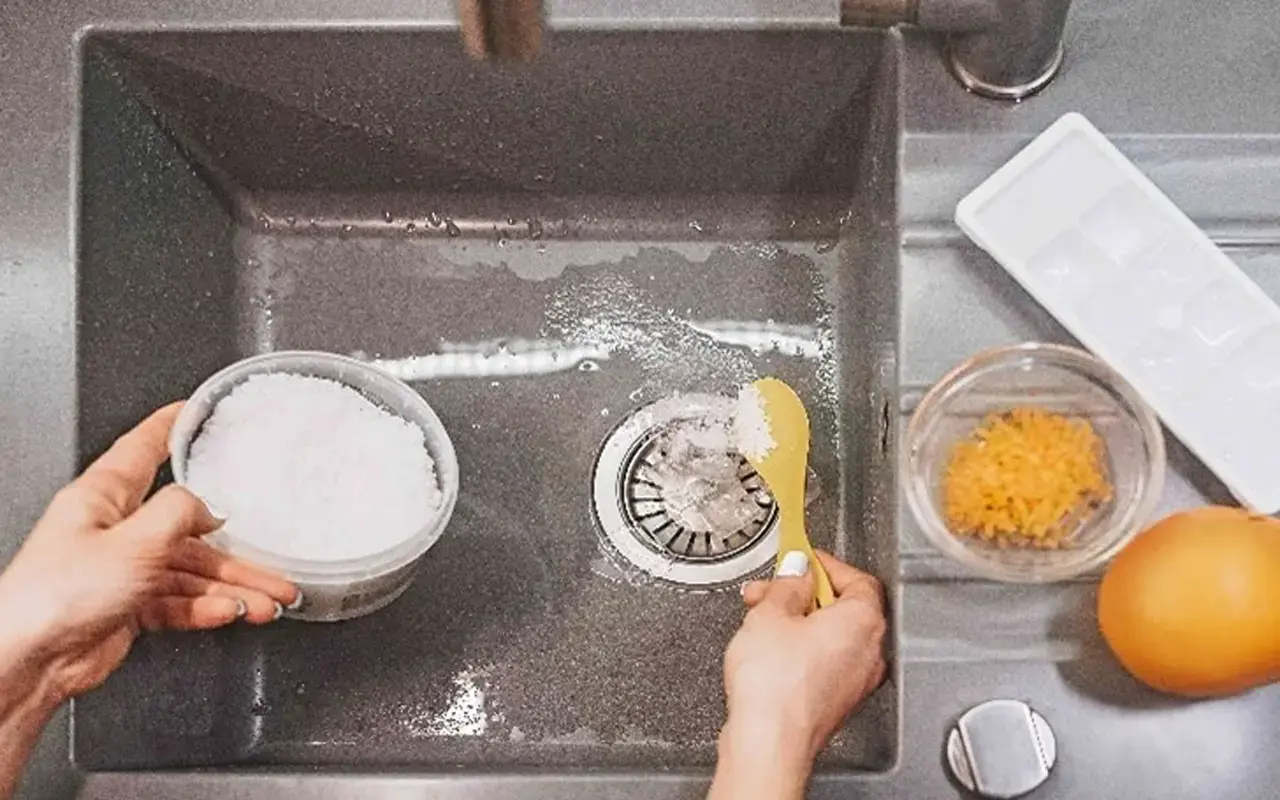
- Pour half a cup of baking soda into the drain, followed by a half cup of white vinegar.
- Plug the drain with the stopper and let the mixture work for 15 to 30 minutes.
- Afterwards, flush the sink drain with hot – not boiling - water.
Drano® Foaming Disposal Strips
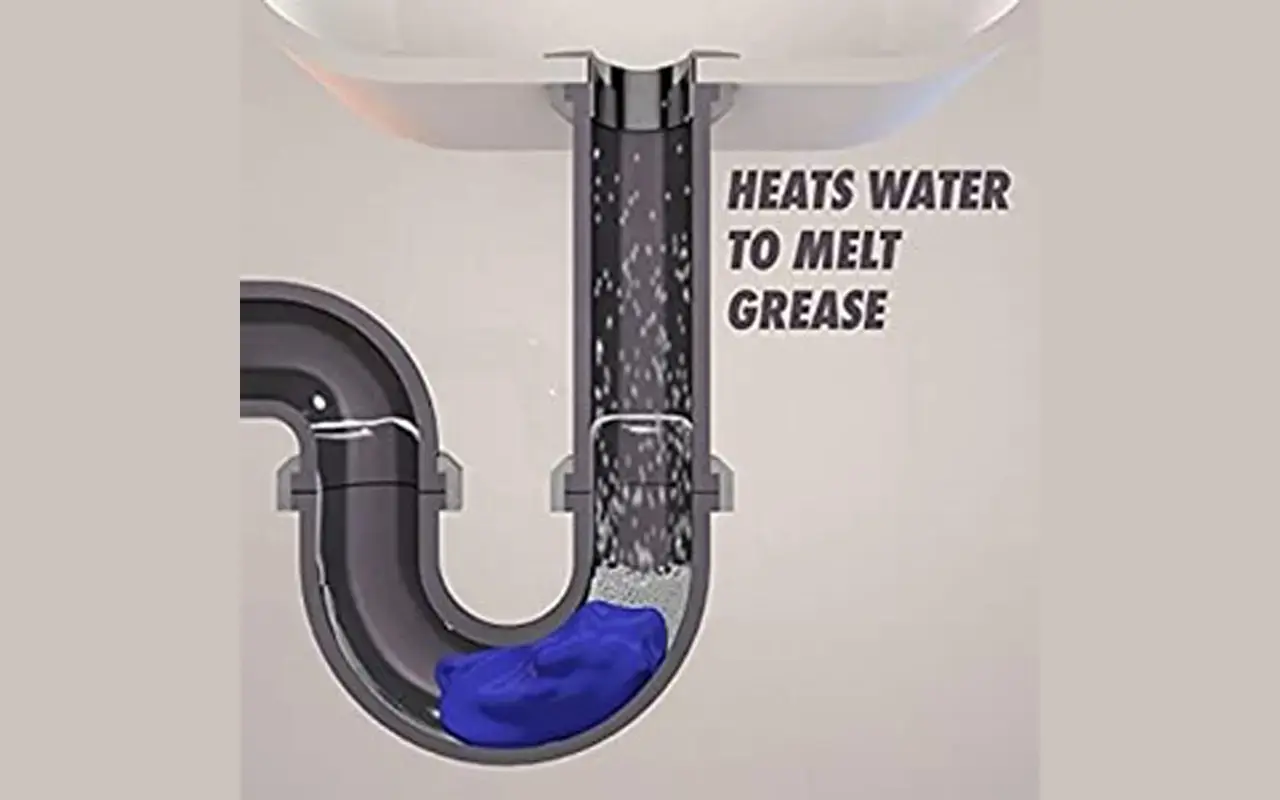
If you have a garbage disposal, using Drano® Foaming Disposal Strips is a great way to freshen your kitchen sink. They are quick and easy to use: drop in, see the foam, and smell the fresh citrus scent. Directions:
- Turn on hot water and reduce to a trickle.
- Unwrap & insert 2 disposal strips into the disposal.
- Turn on disposal for 1-2 minutes.
- Turn off disposal and rinse foam from sink.
Use a drain cleaner product
You may also use a store-bought product to clean a smelly sink drain.
For mildew in the drain, consider using a mold remover or bleach product, taking care to follow all label product instructions.
To get rid of grease and food debris causing sink stinks in the kitchen, we recommend using Drano® Kitchen Granules Clog Remover. This product has a powerful formula that heats water to quickly melt away grease clogs, helping to eliminate odors in the process. Here’s how to use it:
- Make sure any standing water has drained from the sink.
- Measure 3 heaped tablespoons of Drano® Kitchen Granules and pour them into the drain.
- Pour 2 cups of hot water into the drain and wait for 15 minutes.
- Flush the drain with cold water to rinse away the formula.
- Repeat the process, if required.
With any drain cleaning product, read and follow all instructions and safety precautions.
Check the plumbing
A sewer smell from the kitchen sink that doesn’t go away could be a sign of a plumbing issue. Here’s what to do if you suspect that the smell is coming from deeper in the drain:
1. Examine the P-trap. If there are signs of wear or leakage, this could lower the level of water sitting in the pipe, allowing sewer gases to escape into the kitchen. If you think that the connectors just need re-tightening, you can do so manually. However, if you can’t solve the problem this way, it’s possible that the P-trap is damaged or needs replacing, which requires professional assistance.
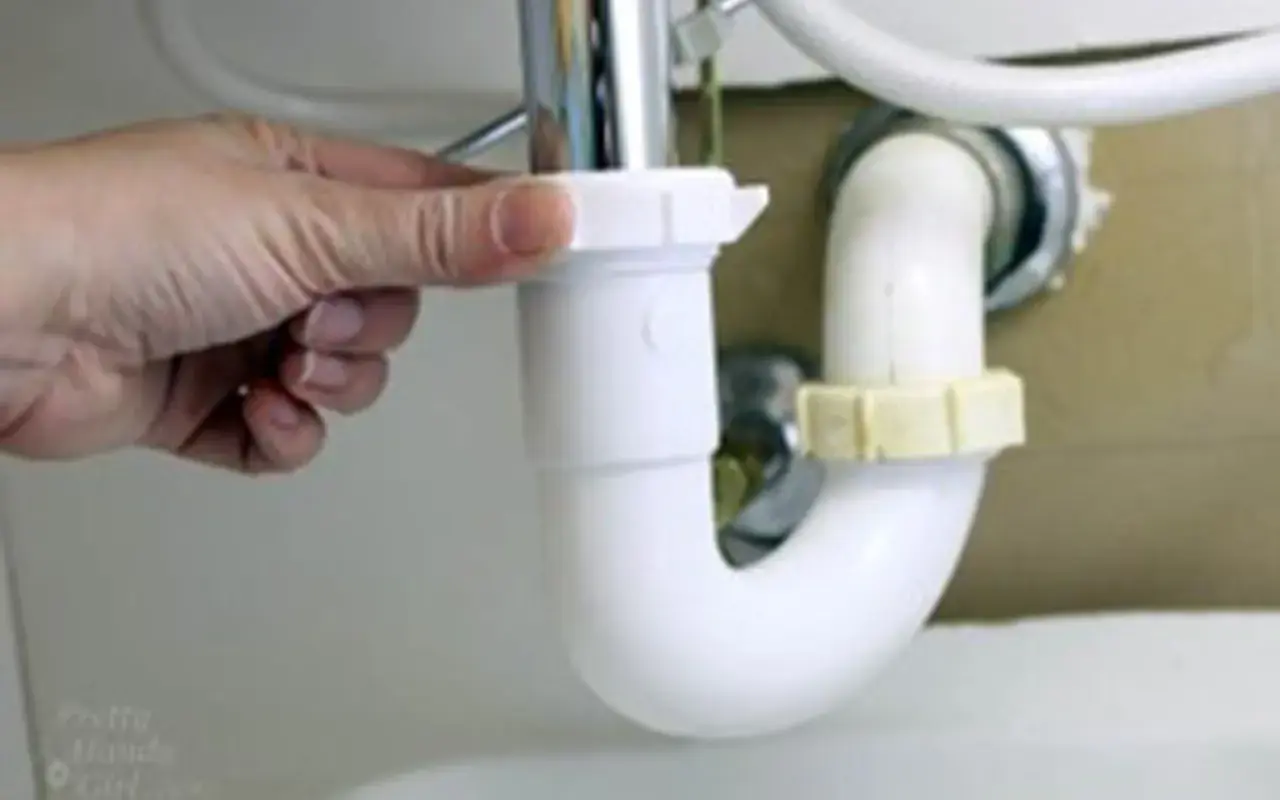
2. Check for clogs beyond the P-trap. If you suspect that a clog deep in the drain is the source of the smell, use a drain snake or other method to unclog the sink as outlined in our guide. If you can’t locate the source of the clog, calling a plumber is your best bet.
3. Run water through the drain in underused sinks. Sometimes the water in the P-trap can evaporate if you haven’t used the sink in a while. This is another possible cause of that rotten egg smell in the kitchen sink.
4. Unclog the sewer vent. All plumbing is connected to a sewer vent found on the roof or side of the house. When this vent is blocked, it can cause sewer gas to back up into the drains. If more than one drain in your house smells, an obstructed vent is a possible cause. If you are comfortable to do so yourself, you can climb up on the roof and see if any debris or obstruction is clogging the vent. However, if you don’t feel confident, seek the assistance of a plumber.
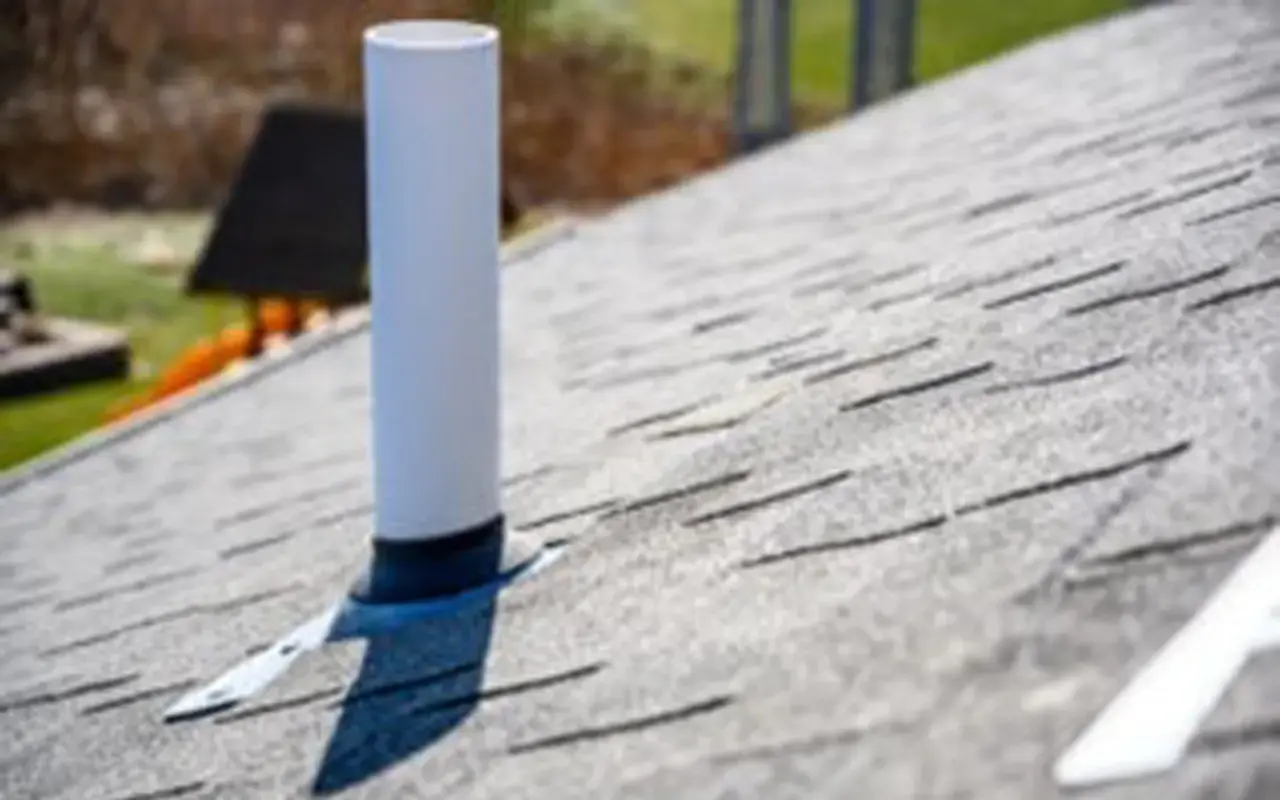
Helping to prevent a bad smell in the kitchen sink
It’s definitely better to prevent a stinking kitchen sink drain before it occurs. Below are tips to help avoid kitchen sink odors:
- Use a drain strainer or screen over the drain opening to catch any food debris before it clogs the sink and causes a smell.
- Do not pour oil, fat or grease into the kitchen sink. Use a kitchen towel to soak up any grease left on pans before washing them.
- Pour any leftover water down the drain every time you boil the kettle. You can even try adding essential oils to the sink to give it a more fresh scent.
- Pour baking soda into the drain once every few weeks to keep the pipes clean and fresh.
- For sinks without a garbage disposal, use a tablespoon of Drano® Kitchen Granules once a week to help prevent grease build up.
- Schedule regular maintenance checks to ensure that your pipes are clean and functioning well.
With these tips, your kitchen sink will be fresher in no time! To ensure you’re prepared for future drain problems, why not take a look at the Clog Basics page for more advice?
Discover more Drano® products to help you tackle any household clog.
Related

5 Ways to Prevent Hair from Clogging Shower Drains
Let’s face it. Your hair can cause some pretty hairy problems (see what we did there?). So what can you do to stop shower clogs in the first place? Well, rather than deciding that bald is your new “look,” here are 5 great ways to prevent hairballs from being your downfall.

How to Unclog Your Kitchen Sink in 3 Steps
A kitchen sink clog can be a nightmare, especially when we use our kitchen sinks so often. But don’t worry, those dirty dishes won’t be piling up for too long. We’ve got some great tips and tricks on how to fix a clogged kitchen sink– so stay tuned!


